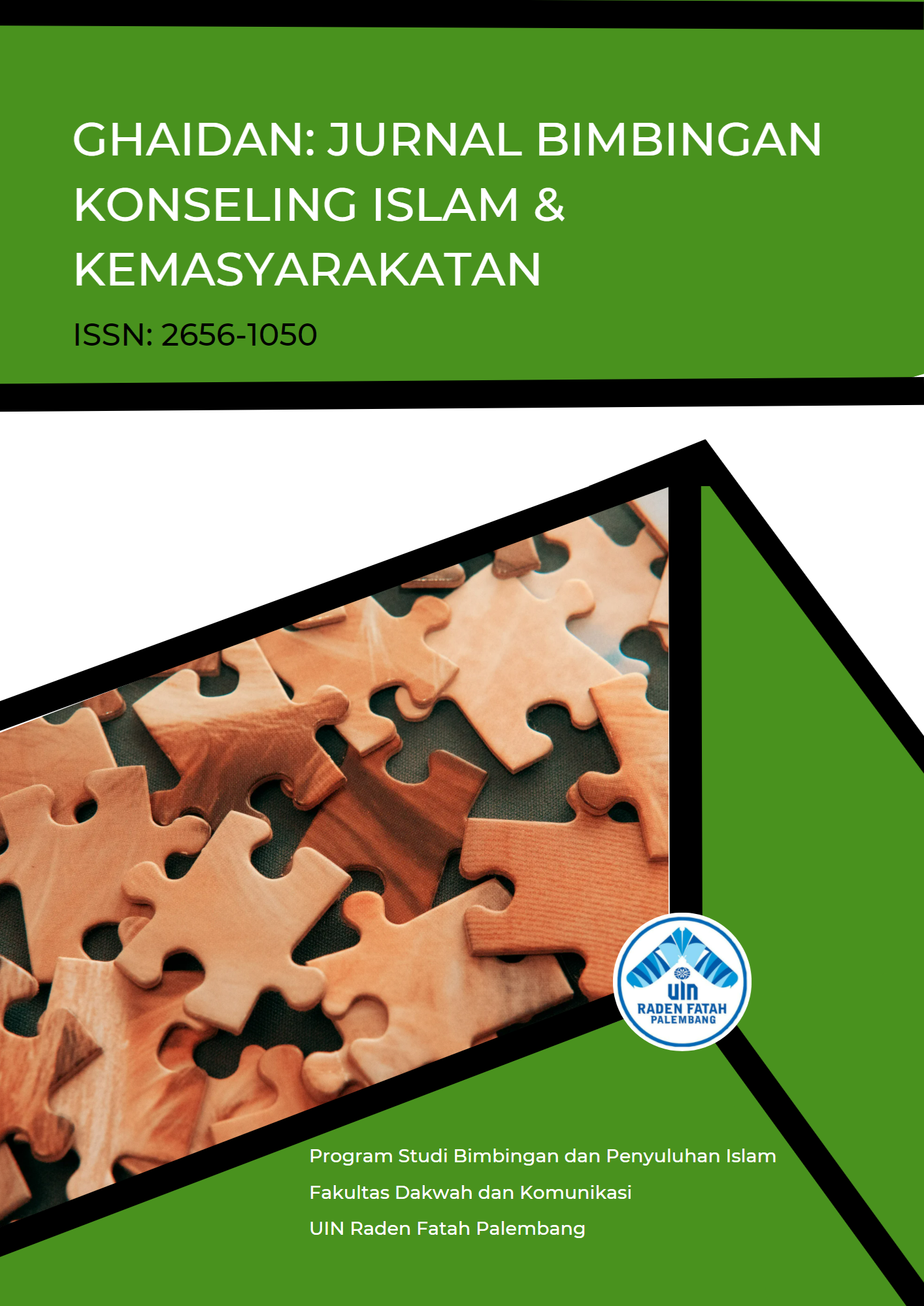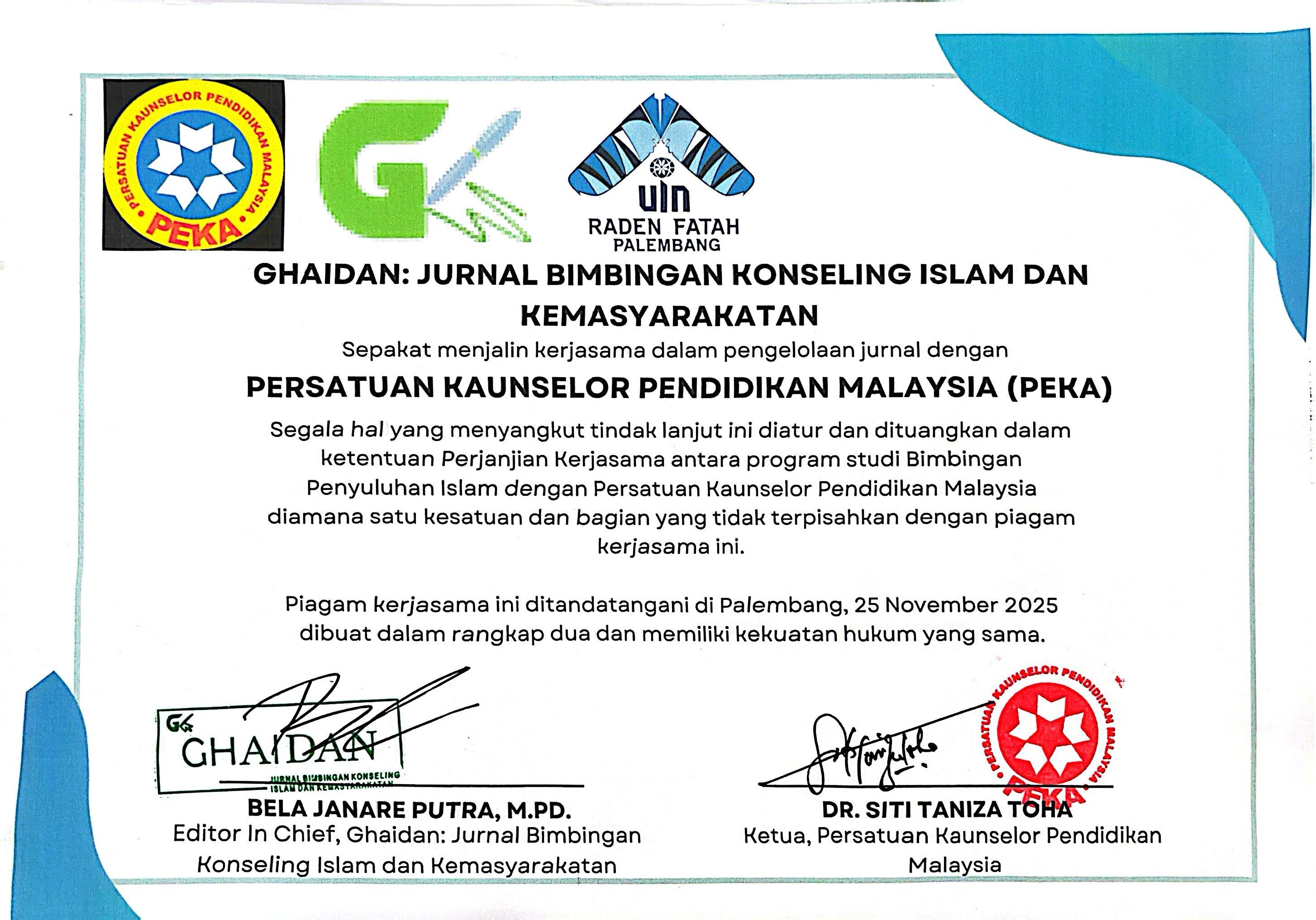Fenomena Bullying Peserta Didik Pada Sekolah Menengah Pertama (SMP)
DOI:
https://doi.org/10.19109/nvzk1j27Abstract
Bullying is an action carried out with the aim of hurting or harming someone, either through cruel words, social exclusion or physical violence. This behavior can occur in a variety of environments, such as school, work, or even online, and often leaves a deep psychological impact on the victim. This research aims to explore the phenomenon of bullying in junior secondary education. The research method used is descriptive quantitative. Sampling used random sampling techniques and a sample of 100 students at Junior High School (SMP) was obtained. Data collection used the Bullying Behavior Tendency Instrument in Secondary Students. Data analysis uses item analysis, indicators with classification techniques for the level of student bullying behavior using Excel and SPSS. The research results found that indicators of bullying behavior were generally in the very low category and indicators of having experienced bullying were mostly in the very low category, but some were in the very low, medium and high categories. It was then found that there were significant differences in bullying behavior in terms of gender, while there was no difference in the level of bullying received in terms of gender, meaning that the bullying behavior received was relatively the same between men and women.
References
Agisyaputri, E., Nadhirah, N., & Saripah, I. (2023). Identifikasi fenomena perilaku bullying pada remaja. Jurnal Bimbingan Konseling Dan Psikologi, 3(1), 19-30. Google Scolar
Alberdi-Paramo, I., Saiz-Gonzalez, M. D., Diaz-Marsa, M., & Carrasco-Perera, J. L. (2020). Bullying and childhood trauma events as predictive factors of suicidal behavior in borderline personality disorder: Preliminary findings. Psychiatry research, 285, 112730. https://doi.org/10.1016/j.psychres.2019.112730
Almira, N. S., & Marheni, A. (2021). Analisis Fenomenologis Interpretatif tentang definisi bullying dan harga diri bagi korban bullying. Jurnal Psikologi Integratif, 9(2), 209-224. https://dx.doi.org/10.14421/jpsi.v9i2.2211
Aminah, A., & Nurdianah, F. (2019). Pengaruh Teman Sebaya Terhadap Perilaku Bullying Siswa. Jurnal Eksplorasi Bimbingan Dan Konseling, 1(1), 1-10. Google Scolar
Bannink, R., Broeren, S., van de Looij–Jansen, P. M., de Waart, F. G., & Raat, H. (2014). Cyber and traditional bullying victimization as a risk factor for mental health problems and suicidal ideation in adolescents. PloS one, 9(4), e94026. https://doi.org/10.1371/journal.pone.0094026
Bete, M. N., & Arifin, A. (2023). Peran Guru Dalam Mengatasi Bullying Di Sma Negeri Sasitamean Kecamatan Sasitamean Kabupaten Malaka. Jurnal Ilmu Pendidikan (JIP), 8(1), 15-25. https://doi.org/10.59098/jipend.v8i1.926
Faizah, F., & Amna, Z. (2017). Bullying dan kesehatan mental pada remaja sekolah menengah atas di Banda Aceh. Gender Equality: International Journal of Child and Gender Studies, 3(1), 77-84. http://dx.doi.org/10.22373/equality.v3i1.1950
Hu, Y., Zhang, T., Shi, H. F., & Fan, C. Y. (2023). Empathy and bystander helping behavior in cyberbullying among adolescents: the mediating role of internet moral judgment and the moderating role of internet self-efficacy. Frontiers in Psychology, 14, 1196571. https://doi.org/10.3389/fpsyg.2023.1196571
Klein, J., Cornell, D., & Konold, T. (2012). Relationships between bullying, school climate, and student risk behaviors. School Psychology Quarterly, 27(3), 154. https://psycnet.apa.org/doi/10.1037/a0029350
Lusiana, S. N. E. L., & Arifin, S. (2022). Dampak bullying terhadap kepribadian dan pendidikan seorang anak. Kariman: Jurnal Pendidikan Keislaman, 10(2), 337-350. https://doi.org/10.52185/kariman.v10i2.252
Nabila, P. A., Suryani, S., & Hendrawati, S. (2022). Perilaku Bullying Dan Dampaknya Yang Dialami Remaja. Jurnal Ilmu Keperawatan Anak, 5(2), 1-12. https://doi.org/10.32584/jika.v5i2.1246
Noya, A., Taihuttu, J., & Kiriwenno, E. (2024). Analisis Faktor-Faktor Penyebab Perilaku Bullying Pada Remaja. Journal of Psychology Humanlight, 5(1), 1-16. https://doi.org/10.51667/jph.v5i1.1741
Oktaviany, D., & Ramadan, Z. H. (2023). Analisis dampak bullying terhadap psikologi siswa sekolah dasar. Jurnal Educatio Fkip Unma, 9(3), 1245-1251. https://doi.org/10.31949/educatio.v9i3.5400
Permata, I. (2022). Dampak bullying terhadap perilaku remaja; Studi kasus pada pelajar sma negri Palembang. Jurnal Intervensi Sosial Dan Pembangunan (JISP), 3(1), 10-16. Google Scolar
Putri, H. S., Febriana, B., & Setyowati, W. E. (2023). Hubungan Antara Peran Kelompok Teman Sebaya Dengan Perilaku Bullying (Korban) Pada Remaja. Jurnal Ilmiah Sultan Agung, 2(1), 263-271. Google Scolar
Rahmah, K., & Purwoko, B. (2024). Dampak Bullying Verbal Terhadap Menurunnya Rasa Percaya Diri. EDUKASIA: Jurnal Pendidikan dan Pembelajaran, 5(1), 745-750. https://doi.org/10.62775/edukasia.v5i1.845
Rozzaqyah, F., Silvia, A. R., & Wisma, N. (2021). Pengembangan Inventori Kecenderungan Perilaku Agresif Siswa SMP. Jurnal Bimbingan Dan Konseling Ar-Rahman, 7(1), 1-11. http://dx.doi.org/10.31602/jbkr.v7i1.4463
Rozzaqyah, F., Silvia, A. R., & Wisma, N. (2021, January). Aggressive behavior: Comparative study on girls and boys in the middle school. In 4th Sriwijaya University Learning and Education International Conference (SULE-IC 2020) (pp. 416-420). Atlantis Press. https://doi.org/10.2991/assehr.k.201230.139
Rozzaqyah, F., Putri, A. A., & Syahiroh, M. R. (2023). ANALISIS KECENDERUNGAN AGRESIVITAS DITINJAU DARI KONTROL DIRI SISWA. Psikodidaktika: Jurnal Ilmu Pendidikan, Psikologi, Bimbingan dan Konseling, 8(2), 441-450. https://doi.org/10.32663/psikodidaktika.v8i2.3539
Sari, Y. P., & Azwar, W. (2018). Fenomena bullying siswa: Studi tentang motif perilaku bullying siswa di SMP Negeri 01 Painan, Sumatera Barat. Ijtimaiyya: Jurnal Pengembangan Masyarakat Islam, 10(2), 333-367. https://dx.doi.org/10.24042/ijpmi.v10i2.2366
Shetgiri, R. (2013). Bullying and victimization among children. Advances in pediatrics, 60(1), 33-51. Google Scolar
Tanjung, R. F., & Sucipto, S. D. (2024). Tinjauan Komprehensif Psikologi Perkembangan dari Janin hingga Dewasa. Bening Media Publishing. Google Scholar
Tanjung, R. F., Sucipto, S. D., Lubis, K., Suryani, Y. D., & Minarsi, M. (2024). Analysis of child development based on development psychological theory. Journal of Education and Learning (EduLearn), 18(3), 1091-1098. https://doi.org/10.11591/edulearn.v18i3.21769
Widodo, Y. P., Oktiawati, A., & Sari, D. I. P. (2021). Hubungan Teman Sebaya Dengan Perilaku Bullying Verbal Pada Anak Di SD Panggung 4 Kota Tegal. Bhamada: Jurnal Ilmu dan Teknologi Kesehatan (E-Journal), 12(1), 11-16. https://doi.org/10.36308/jik.v12i1.252
Yosef, Y., Hasmalena, H., & Sucipto, S. D. (2020, March). Parental self-efficacy in educating elementary school children. In International Conference on Elementary Education (Vol. 2, No. 1, pp. 977-985).Google Scholar
Zakiyah, E. Z., Humaedi, S., & Santoso, M. B. (2017). Faktor yang mempengaruhi remaja dalam melakukan. Jurnal penelitian & PPM, 4(2), 324-330. Google Scholar
Downloads
Published
Versions
- 2024-12-13 (2)
- 2024-12-13 (1)
Issue
Section
License
Copyright (c) 2024 Fadhlina Rozzaqyah, Romi Fajar Tanjung, Dian Sri Andriani, Silvia AR, Imam Bastoh Amarullah, Annisa Assakdiah

This work is licensed under a Creative Commons Attribution-ShareAlike 4.0 International License.





